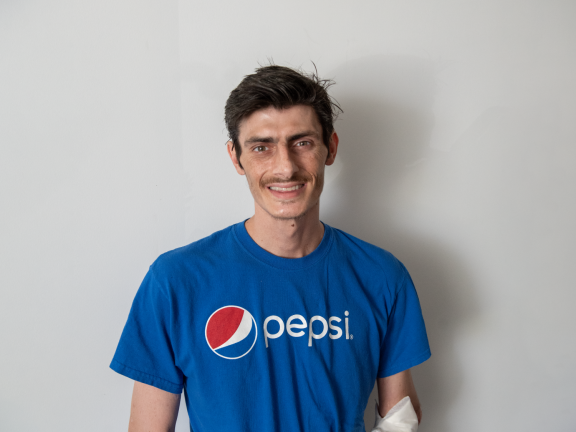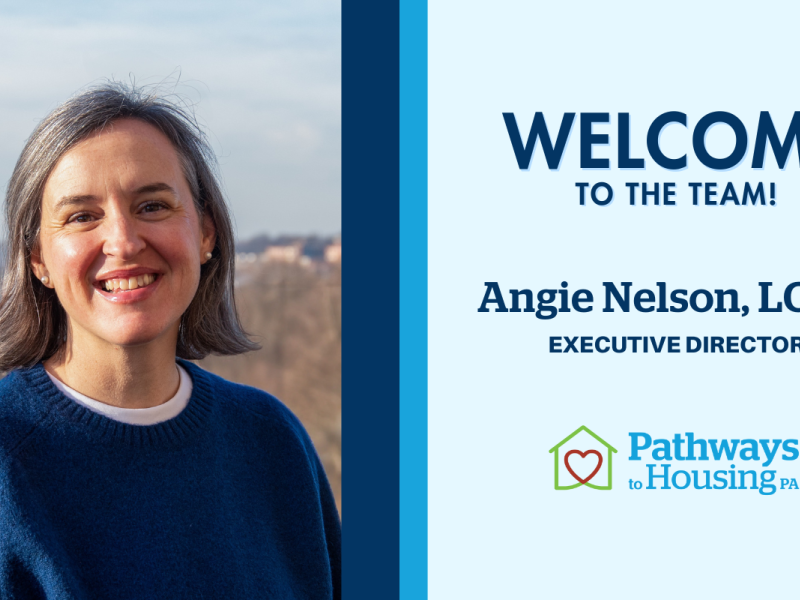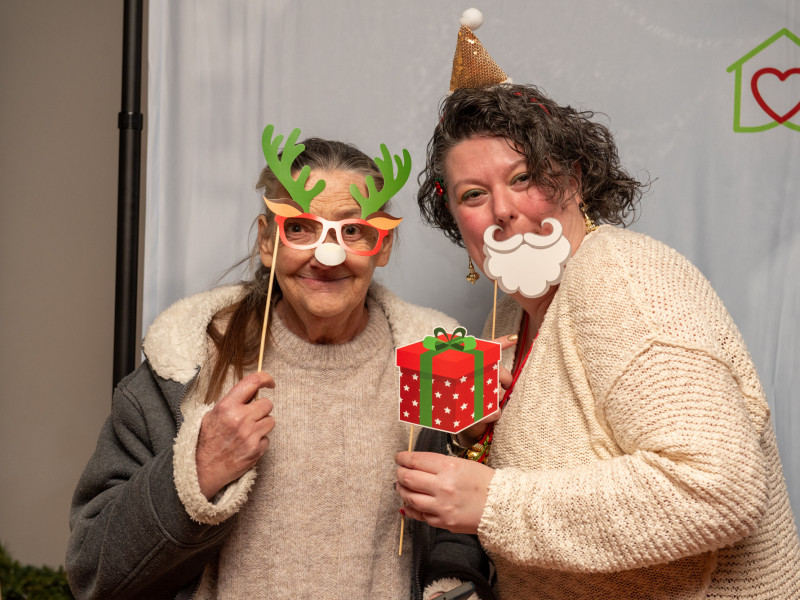James' Story

In 2017, we launched our first housing team for individuals with opioid use disorder, offering immediate housing along with the support needed to thrive. Since then, we’ve expanded to three teams, supporting over 200 individuals. Some participants, like James, have even graduated to lower levels of care. Now, we’re excited to share James’ story:
James: "Oh, it's not hard to remember [my first apartment]. It was wintertime. And it was during a code blue. So the people I lived with, in order to survive the cold, we would have to sleep together and share body heat. We had lost a couple people. So it was difficult. It was just me and my friend Bob. It went from like six people to two. It just, you know, it was awful.
That first night [in the apartment], there was barely any furniture. But it was paradise to me. It was just wonderful. I remember it has electric baseboard heat. I remember turning it all the way up, laying out a few blankets. Yeah, it's not hard to remember, it's a vivid memory. I was just so glad to be somewhere that I could sleep, where I wouldn't wake up and my joints weren’t so stiff and cold. I was so glad to be somewhere where I wasn't at risk of getting arrested just for sleeping there.
You know, it actually took time to get used to because I just had been so used to an environment where anything can be taken from you at any time. And to have a door that I could lock and a team that says ‘you're safe here.’ There was a lot. It was great.
[The team] helped me figure out not only the best way to obtain, say groceries and stuff, but they also helped me with budgeting. Because I did not have food stamps prior to being housed, they helped me get those as well. I had no idea how to go about doing it when I was by myself out on the street. So for the first time I had food stamps, which was also just an amazing turning point for me.
They would take me to the grocery store. Not only would they assist me in the sense that they would give me a ride, but they would help me stretch the food stamps. You know, my impulse was, I have this money, I'm going to just buy whatever I want and do all this. But they were like, very helpful in the sense that they were like, you know, buying the ingredients for these and making it yourself is a lot cheaper. You know, and that helped a lot. Whereas I thought, you know, $300 in food stamps would last forever. It didn't. That was helpful that they did that for me.
I think it was just more or less the encouragement that they offered without the strict parameters. It blew my mind. And it was like, you know, you can move at your own pace, we're always here, if you want to look up and change your lifestyle or just better yourself. I had dealt with social workers before. And a lot of them will say, some sort of sentiment like that. But these people really were. They would answer the phone 99% of the time, like the first call, and then they were not distracted when they were on the phone with you. They really were attentive to your needs and concerns. It was like, all of a sudden going from being essentially alone, adrift in the ocean, to finding a port and having a support network, which was also just a huge thing for me.
A lot of times when I was out homeless people would drive by and they'd yell out of their car, ‘get a job,’ all this stuff. People don't really [get it]. But there are so many components, that you can't just drop somebody [in a home]. Like, ‘okay, here's housing.’ The addiction is going to eventually interfere to the point where they'll lose the housing. But having their support right away made me feel like there was that safety net, where I could go out on a limb and try to start working again. And then once that worked out, it was getting better and better. I don't think any of that would have happened without feeling like I had that safety net."
Continue reading James' story here.
We are incredibly honored to be able to support people like James in their journey towards reclaiming their lives. It’s not always easy work, but it’s incredibly rewarding to see our participants overcome challenges and achieve their goals.
We hope you will continue to support our life-changing work by making a donation to help us reach our goal of $75,000 by January 1. These funds will ensure we are able to help more than 500 participants just like James as they accomplish their goals.


